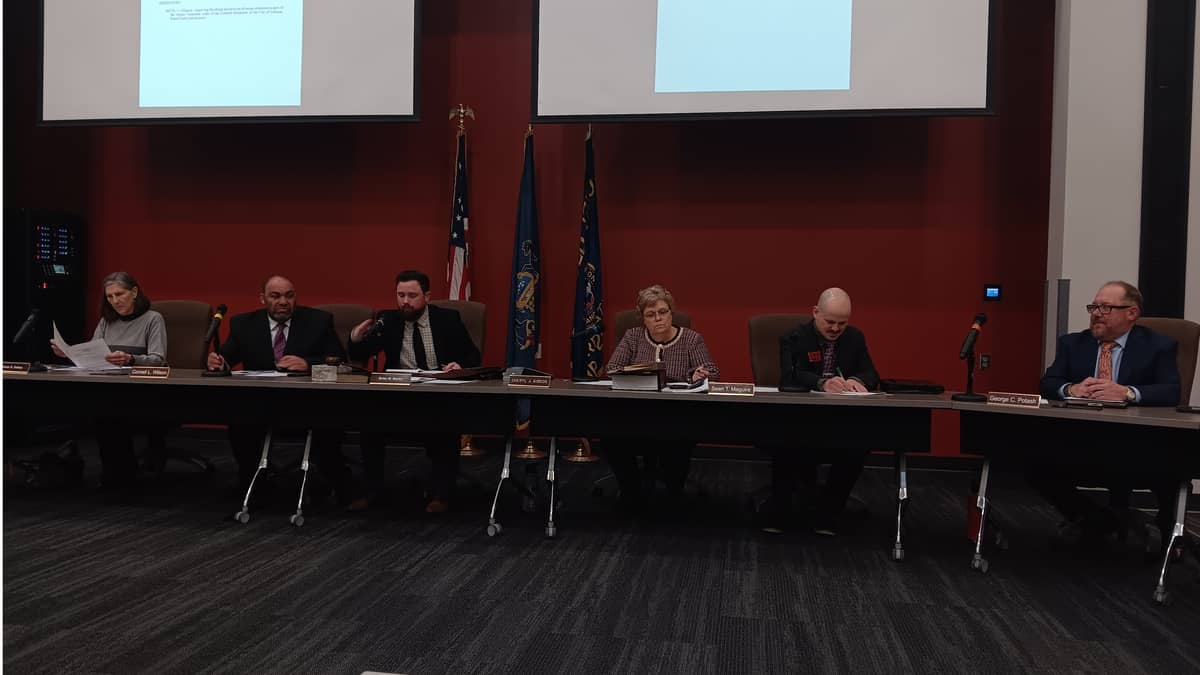On May 21, the season’s first positive case of West Nile Virus in Pennsylvania was documented by the Lebanon County Mosquito-borne Disease Control Program from a sample taken in North Londonderry Township. While late May is a relatively early date for Pennsylvania’s first documented case of the summer, local and state officials have been managing West Nile Virus for nearly 20 years.
“While it will always be here and we’ll never get rid of it, West Nile Virus is very preventable,” said Olivia Bingeman, Lebanon and Lancaster Counties’ Mosquito-Borne Disease Control Program Coordinator. “And the way to do it is to get rid of standing water. These mosquitos only come out around dawn and dusk, so we can minimalize our exposure to them. We can use bug spray, and mosquitos are actually poor fliers, so fans can protect you from them as well.

“We found the first case of West Nile Virus in the state a couple of weeks ago in North Londonderry Township,” Bingeman added. “It doesn’t mean they aren’t elsewhere or that people should be avoiding that place. But it’s pretty early. We usually start seeing these positive cases in June or July. We could see more, but it really fluctuates.”
The first positive cases of West Nile Virus in Pennsylvania were reported in 2000. Last year in Lebanon County, there were a total of 19 positive cases detected, but none in humans.
“We do get a number of deaths from West Nile Virus,” said Bingeman. “In 2018, that was our last bad year. I think we usually get 20-50 cases in the state throughout the year. But in 2018, there were over 200, and in Lancaster County, we had 20 cases and five deaths.

“With my program here in Lebanon County, it’s myself and one other employee, so it’s tough for us to see the entire county,” continued Bingeman. “If residents see something, they can reach out and let us know. It’s one of the ways we become aware of them (mosquitos) in the first place.”
Transmitted mostly by mosquitos, West Nile Virus affects humans differently, but the younger and older portions of the population more adversely. About 80 percent of those infected by West Nile Virus will not show any symptoms at all.
Approximately 20 percent of people infected with West Nile Virus develop minor symptoms like fever, body aches, skin rashes and nausea. Only one in 150 humans infected by West Nile Virus will exhibit severe symptoms such as blindness, comas, paralysis or muscle weaknesses, some of which can be permanent.
“For the majority of people who have symptoms, it seems like the common cold or the flu,” said Bingeman, a 26-year-old resident of Lebanon County. “If the symptoms are worse than that, going to a doctor would be a good thing. Since it’s a virus, antibiotics won’t help. If people are having cold-like symptoms, the best bet is to ride it out. More severe symptoms need to be treated in a hospital.
“For most healthy people, you’ll get a cold,” Bingeman continued. “However, for the super young or the super old, there is the potential for the disease to become more severe. They can get neurological symptoms, and paralysis is definitely something that can happen.”
The best way to decrease the infection rate of West Nile Virus is to control and manage the local mosquito population. Mosquitos that transmit the West Nile Virus thrive in moist, humid conditions.

“Mosquitos aren’t the only type of carriers, but they are the main carriers,” said Bingeman. “Our traps are designed to pick them up. In terms of adult mosquitos, they prefer leafy greens, shrubs, trees and overgrowth. In terms of water, they like the saucers under flower pots that hold water. They really like retention ponds. They will also use man-made materials like tires or buckets, anything that’s left outside and that can hold water can breed mosquitos.
“These mosquitos usually come out around mid-April,” added Bingeman. “By mid-September, we tend to see their numbers start to drop off. What’s cool about this is that people have the ability to do something about it. No one likes mosquitos. If there is no standing water, they’ll go somewhere else or they won’t breed. Once mosquitos get to a certain point, they can spread more diseases more readily.”

The West Nile Virus was first discovered in Uganda in 1937. Also prevalent in Europe, Australia and Asia, the West Nile Virus was first detected in North America in 1999, and thousands of cases of the disease are reported in the United States every year, mostly in August and September.
There is no human vaccine for the West Nile Virus.
“In my opinion, I don’t think it’s possible to eradicate it,” said Bingeman. “If we could’ve, we would’ve done it by now. We can’t get rid of standing water, but we can definitely do some things to minimize it. We’re (Lebanon and Lancaster Counties’ Mosquito-Borne Disease Control) a state-wide program and our funding comes from the Pennsylvania DEP. We have people looking at the West Nile Virus across the state. The goal in general is the surveillance of mosquitos, so we can assess the risk. We want to keep tabs on the risks of getting West Nile Virus, and manage them.

“I think the biggest thing for people to remember is that mosquitos aren’t just nuisances,” concluded Bingeman. “They can be harmful, but there are some things that people can do about it. I want to let people know I’m here, because I think some don’t even know my program exists. We can come out and treat certain public areas. Outside eyes and ears are always good.”
Because an ounce of prevention is worth a pound of cure.
For more information or to report a case of West Nile Virus, go to the West Nile Virus Control Program’s website, email Bingeman at Olivia.Bingeman@lccd.org or call 717-277-5275, extension 112.

























